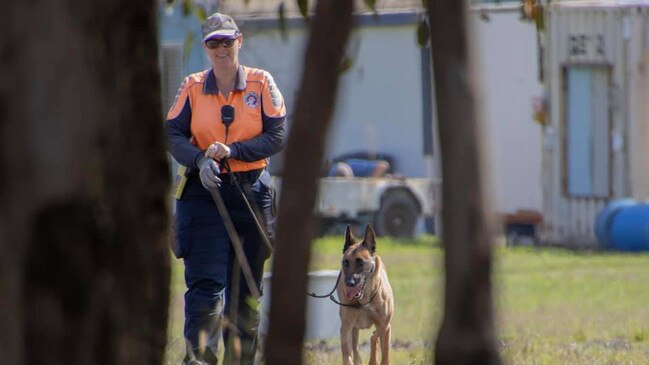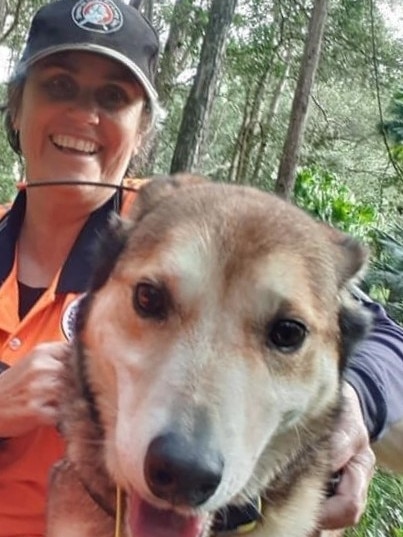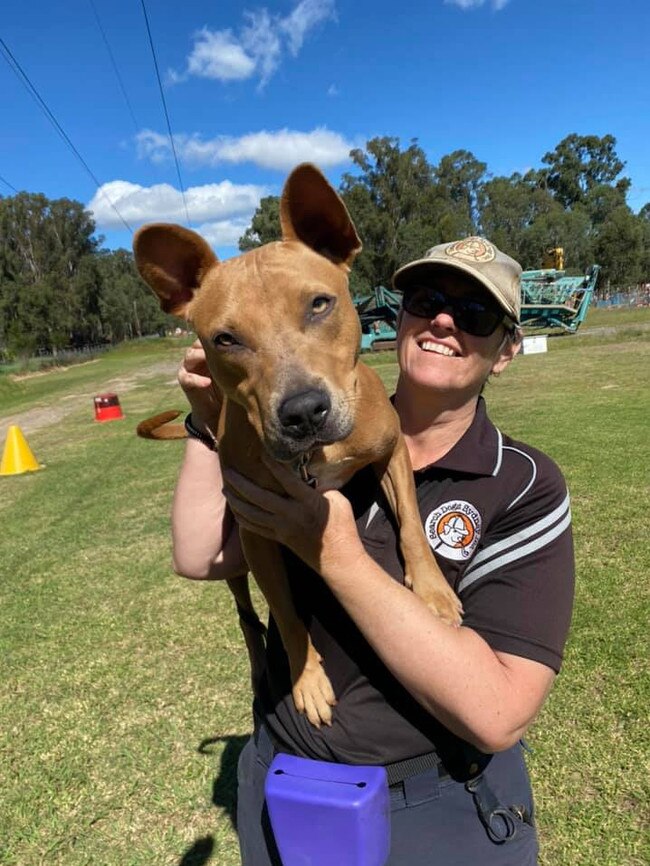Search Dogs Sydney: Adele Jago shares the story behind her initiative operation
Every year, this Sydney woman volunteers to help search for missing people across the state. Read the inspiring story behind her vision for good that started with her pet dog.
Liverpool
Don't miss out on the headlines from Liverpool. Followed categories will be added to My News.
One southwest Sydney woman has dedicated thousands of hours every year to locate missing persons and while it’s a tough volunteer gig, she remains to determined to help families search for their loved ones.
Adele Jago started her organisation Search Dogs Sydney after a missing persons case cropped up and her help was rejected.
“Back in 2016, an elderly lady went missing in the Blue Mountains, and to this day she’s still not been located, but at the time we had a trained search dog in the backyard and we offered his services, and we were rejected on that front,” she said.
“My partner and I decided that we needed to fill that space, and we opened up Search Dogs Sydney.”
According to NSW Police, on average 28 people go missing every day in the state and while most people are located almost immediately however around one per cent go on to become Long Term Missing Persons.
The national definition of long term is any person missing for over 90 days. The Missing Person Registry oversees missing person cases dating back to 1945. In 2019 there was a total of 769 Long Term Missing Persons across NSW. By the end of 2020 this had reduced to 757.
“Most of our cases are confidential. We don’t talk too much about them, and most of them are also long-term missing cases,” Ms Jago said.

“At the moment, the police do not ask for our services, and most of it is just a request directly from the families.
“Sometimes we do have happy endings, we located an autistic child, I think it was about two years ago. He‘d been missing for over 30 hours when we got the call from the family, and within three hours we’d deployed and actually located him and got him back to his family.”
A case that is close to Ms Jago’s heart, and the hearts of her volunteers, is the one of Ray Speechley who went missing from aged care facility on Ruth Place, Dalmeny on Thursday July 7, 2016 around 4pm.
Each year, we go down to Dalmeny (on the south coast of NSW) and continue the search for him,” she said.
“It’s one that is actually quite close to all our hearts now. You get quite involved with the cases, the families, and if we can help bring some answers to these families, that’s what we want.”
The searches themselves can be challenging with the volunteers and dogs battling the terrain and weather.
“Usually, we use what we call lost person’s behaviour to work out where the best place is to put our dogs in, so that they’re most likely to locate the person,” Ms Jago said.

“But our big challenge as an organisation is getting called out early in the search, so that we’re looking for a person while they’re still alive, rather than when they’re deceased, or when they become one of the long-term missing.
“That’s what we’d prefer, is to be out looking for them while they’re still alive in the very, very early days, rather than them becoming one of the long-term missing.”
The entire organisation is made up of volunteers who dedicate their time to training their dogs, and then assisting on searches. However, this means the organisation can be limited in what they are able to do to help.
“At the moment, we are restricted to within a couple of hours of Sydney, if it’s for a live person search, if we get there quick enough. But for our long-term missing, we schedule them in,” Ms Jago said.
“We’re pushing for government funding so that we can get out there and assist more families.

“At the moment, we all have our own jobs, we’ve still got bills to pay, so we’ve still got our own jobs to do. So if we were to get some government funding, we could then potentially be out there doing this five to seven days a week.”
It can take anywhere between 18 months, and two years to train a dog for Search Dogs Sydney. While they don’t have to be a particular breed, Ms Jago said there were certain criteria that was essential to ensure they were the right canine for the job.
“We all have our own dogs, and the biggest criteria for the dogs is that they are high drive, so they‘ll do anything for a ball,” she said.
“We want the type of dog that will just bring that ball back to you all day, every day. They’re the ones that have the stamina and the drive to be able to go out looking for a person for two or three hours even, and just want to keep looking, keep looking.
“They’ve got to be bold, they’ve got to be confident, they’ve got to be friendly. The last thing we want is to find someone and then the dog bite them.”
In 2020, Ms Jago was named a Local Legend by LG for her work with Search Dogs Sydney, and while there was a prize she said the best part about being recognised was getting her name out there to families.
“LG has helped get the word out about us, that we are available to come out and help search for their missing loved ones,” she said.
If you know someone making a difference through their time, actions, talents and dedication to others, you can nominate them to be named an LG Local Legend by visiting here.




